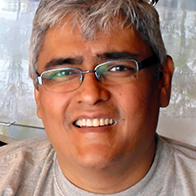All Malaysians with disabilities urgently need a fixed monthly allowance from the government to help them meet the rising daily cost of living.
Those with profound physical disabilities especially above 50 years of age, need specially trained able bodied persons to help them with everyday living skills.
And healthcare for disabled persons significantly need to be improved as many of them are even unable to go to hospitals to seek medical treatment for their conditions.
These three items were just some of many pressing issues which raised by Malaysians with disabilities at a significant two-day symposium that was held last month.
It was attended by more than a hundred participants in Petaling Jaya, Selangor.
I was very impressed with the event which was organised by a group called, The Malaysian Left Coalition (MLC).
The purpose of the deliberations, together with other non-governmental organisations (NGOs) on a variety of matters was to bring them up in this month's tabling in Parliament of the 11th Malaysia Plan next month.
MLC was formed after the 13th general election by several NGOs and individuals.
The members strongly felt that there was a need for a left movement which could offer helpful alternatives to the nation.
It was timely that some sort of a monthly financial assistance was raised for persons with disabilities. And this should be given to all disabled persons in the country instead of only some of them.
Currently, a monthly allowance of RM350 is given from the government to people with disabilities (PWDs) who are employed.
In order to qualify for this, their salaries must not be more than RM1,200 a month.
Disabled people with jobs within the ceiling bracket had all along been receiving RM300 until a RM50 increment was provided for in last year's Budget Day.
Although the government thought the RM50 was a good thing, disabled Malaysians felt it didn't go far enough to make their lives comfortable.
Then there are those who have no jobs but are entitled to get up to RM200 a month. Frequently, though, that doesn't turn out to be the case.
Unemployed candidates are subjected to be "assessed" by a welfare officer first (whom more often than not are able-bodied persons instead of a person with a disability himself) before the officer decides on the amount that would be allocated to the person.
I know of disabled friends and clients from our society who end up receiving monthly amounts of as low as RM60 and RM80.
This is usually barely enough to cover the taxi fares from their homes to the stipulated bank by the Welfare Department in order to withdraw the cash.
To save on this, some welfare dependants decide to make their collections on alternate months.
However, such practises have drawn negative remarks from some welfare officers saying, "If you can wait for two months before making your collections, it appears as if you don't really require the financial assistance as you say."
Whichever way, it really is a lose-lose situation for the handicapped.
It was recommended in the MLC symposium that a minimum of RM800 per month be given across the board for PWDs, regardless of whatever additional financial assistance they may or may not already be receiving.
Proving for, and having access to personal attendants (PAs) is the "in-thing" these days in Western and Asian countries as persons get older and disabilities become more common.
PAs are specially-trained professional helpers who are provided and paid for by the government to help disabled persons in their personal grooming, care and exercise in the improvement of quality care in their lives.
They are also tasked to clean, cook, wash clothes, bathe their clients and perform other living skill chores.
The symposium heard how this was vital especially for ageing disabled persons in the country.
"Otherwise, growing into 50 years of age and above would be a 'virtual death sentence' with no one to care for persons with disabilities especially among the poorer communities."
On healthcare, there are still vital areas that need to be improved where disabled patients are concerned.
Although hospital consultations are free, important medications are not always available and the handicapped have to buy them on their own.
Access to hospitals in terms of transportation is getting increasingly difficult for ageing patients with high costs of taxis or some even refusing to take their wheelchairs.
Rehabilitation units in government hospitals should provide transport for wheelchair using patients like ambulances.
There should be more staff like porters to help patients in wheelchairs to get around to their treatment centres in hospitals.
I followed the MLC symposium through their webinar service.
I thought it was great that more and more NGOs are making a conscious effort to invite the participation of disabled people in their events in order to give them a powerful voice, too. – May 4, 2015.
* This is the personal opinion of the writer or publication and does not necessarily represent the views of The Malaysian Insider.


Comments
Please refrain from nicknames or comments of a racist, sexist, personal, vulgar or derogatory nature, or you may risk being blocked from commenting in our website. We encourage commenters to use their real names as their username. As comments are moderated, they may not appear immediately or even on the same day you posted them. We also reserve the right to delete off-topic comments